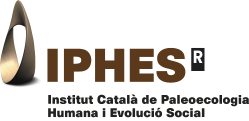NewsNext Previous
Open the pre-enrolment for the Master’s degree in Quaternary Archaeology and Human Evolution (Erasmus Mundus)
Recently it has received the excellence mention from the Agency of Quality of Catalunya (AQU), the only qualification of the URV with this distinction
català – photos – español – web
Until the next June 19 is opened the pre-enrolment of the Master’s degree in Quaternary Archaeology and Human Evolution (Erasmus Mundus) for the course 2015-16 at the University Rovira i Virgili of Tarragona (URV). This master is possible thanks to the research of the first level that is realized at IPHES (Institut Català of Paleoecologia Humana i Evolució Social). Recently, the master has been credited with the excellence mention from the Agency of Quality of Catalunya (AQU), being the only master of the URV with this distinction.
This master is offered from the course 2004-2005 together with other European institutions: Università degli Studi di Ferrara (Italy), Muséum National d’Histoire Naturelle (Paris, France), Instituto Politécnico de Tomar and Universidade de Trás-os-Montes e Alto Douro (Portugal).

Since the beginning, in the URV each course about 15 new students have started this master. They come from all regions of Spain and from different countries, including Italy, Portugal, Algeria, Cuba, Venezuela, India, Morocco, Ethiopia, Eritrea, China, Indonesia, Armenia, Chile, Argentina, Georgia and Mexico.
Carlos Lorenzo, coordinator of this master emphasizes the quality of this academic offer, recognized by different institutions: “The Erasmus Mundus distinction from the European Union implies an international collaboration and to overcome a very rigorous selection process”.
The attractions
The research projects that IPHES develop in Eurasia, like Atapuerca and Orce in Spain, and Dmanisi in Georgia, there are some of the attractions to receive students, which they see a possibility to participate in very important excavations and analyze very important topics of the human evolution, like the different aspects that explain the first human dispersions, the routes they followed, the species that led them, etc.


